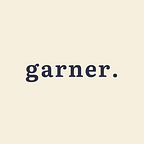From cynicism to hope
by Stephanie Wescott
For a long time, I have cherished my cynicism as a symbol of my enlightenment. I knew the truth: that everything to do with the state of the world, environmentally, politically, and socially, is dire, that individuals are ultimately egoistic and concerned very little with broader issues, that our politicians are slaves to vested interests that prevent them from truly transformative policy-making, and that we are so far removed from the most essential versions of ourselves that most of us could never hope to return.
I think I do need to forgive myself for holding these views so resolutely. My sources of news and opinion are hives of outrage and despair. I could absentmindedly scroll for hours through my feeds and expose myself to scathing critique of our country’s leaders, the latest of America’s leader’s most grotesque failings, the stubborn ignorance of commenters on news articles, and an array of instances of animal suffering. I encountered the philosophical concept of antinatalism on neuroscientist and philosopher Sam Harris’ podcast, an accompaniment to Facebook pages I already followed such as Population Matters, and began to fret about Australia’s birth rate, and viewed my own desire to become a mother as a selfish one incongruent with my concerns about the environment.
The cynicism in my head performs a brutal and unforgiving critique of the world around me. It looks at a new shopping complex, for example, and frets about environmental degradation and the ills of rampant consumerism, it curses SUVs brandishing ‘Baby on board’ stickers, it recoils at perky personalities, it scorns god-believers, it overhears conversations at cafes and rolls its eyes, it imagines a hopeless future–drought-stricken; a furnace populated within an inch of its life.
This cynicism hauls me out of the tangible world around me, where I am safe, I am loved, the sun beats down on a small plot of land that is my own, a joyous golden retriever greets me each morning, and a beach croons nearby. Really, it is sickeningly pleasant. And yet, holding my cynical lens in front of me like the antithesis of rose-coloured glasses, I am permanently bothered and despairing.
At what point did my cynicism become blatant pessimism? Terminal negativity? What a piece of shit I might be in others’ company. I began to fear that new people I met would find me unbearably contemptuous.
And then, a few things changed. I read ‘The enlightenment of the greengage tree’ by Iranian writer Shokoofeh Azar, and found myself enthralled in its storytelling form — magical realism, a weaving of a modern story of Iran following the Islamic Revolution of 1979 and Iranian mysticism. The devastating reality of the story: invasions, mass killings, forced conscriptions, suppressions, mingled with its tales of spirits, mythical creatures, characters transforming into fish, immersion in the impossible and the unbelievable. I found the story to be a retreat and a relief.
Further, I watched ‘Moana’ and allowed myself to enjoy it. A friend gifted me a copy of Harry Potter and I submitted to the Sorting Hat quiz (I’m a Hufflepuff), and vowed to read all the books. I began to view fantasy worlds as an antidote to the suffering I was seeing in my own, and revelling in them to not be a weakness, or an avoidance, but rather, a recognition that humans have always told and believed fantastical stories–fairy tales, Dreaming, biblical, legends. I found myself no longer wanting to evade what isn’t completely proven or scientific or shrouded in cynicism. It is okay, I told myself, as a human, to seek something beyond what is tangible. It doesn’t make you weak, I decided. It has been part of our psyche forever.
I had the most stunning realisation of all while listening to the following wisdom from Maria Popova, curator of Brain Pickings, speaking on the podcast On Being:
To live with hope in times that reward cynicism and, in many ways, call for cynicism, I think, is a tremendous act of courage and resistance.
It might be naive to choose hope, but I want to try it. I want to hope that things could actually get better, that people can be better, that the world of my future might be better than my cynicism imagines it to be. And, viewing hope as an act of resistance emboldens it; it becomes more disobedient than avoidant, more rebellious than guileless. Perhaps in a way, cynicism made me more cowardly than I imagined I could be were I to assume a more hopeful outlook; I used cynicism as a means to protect myself from the disappointment of expecting a better outcome.
And with the invitation of hope comes an openness to the imaginary and the imagined, the fantastical, the mythical and the magical; my reading interests have broadened and so too has my curiosity in the potential for something other than what is tangible, measurable, proven.
With hope, I am optimistic, I am less dismissive, less certain; less fixed on a predicted outcome.
And, hopefully, I am better.
